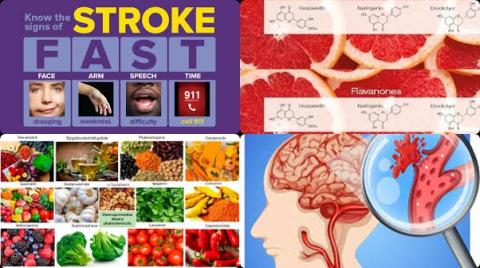
Objectives:
Epidemiological studies indicate that higher intakes of flavonoids are associated with reduced stroke risk. However, which subtypes play significant roles to protect against stroke remain unclear. Therefore, this review article has been conducted.
Does dietary intake of different flavonoid subclasses (flavanones, flavan-3-ols) reduce risk of stroke?
Study design:
This review article included 10 independent prospective cohort studies with 387,076 participants and 9,564 events (persons with stroke).
Results and conclusions:
The investigators found higher intakes of flavanones significantly reduced risk of stroke with 15% [RR = 0.85, 95% CI = 0.78 to 0.93].
The investigators found dose-response analysis showed that 50 mg/day increment of flavanones dietary intake was significantly associated with 11% reduction in stroke risk [RR = 0.89, 95% CI = 0.84 to 0.94].
The investigators found dose-response analysis showed that 200 mg/day increment of flavan-3-ols dietary intake was significantly associated with 14% reduction in stroke risk [RR = 0.86, 95% CI = 0.75 to 0.98].
The investigators found no association with respect to other flavonoid subclasses.
The investigators concluded that both 50 mg/day flavanones and 200 mg/day flavan-3-ols dietary intake reduce stroke risk. The findings of these associations of the present study need to be confirmed in other regions and ethnic origins.
Original title:
A meta-analysis of prospective cohort studies of flavonoid subclasses and stroke risk by Li XQ, Wang C, […], Guo XF.
Link:
https://pubmed.ncbi.nlm.nih.gov/35023220/
Additional information of El Mondo:
Find more information/studies on flavonoid consumption and stroke prevention right here.